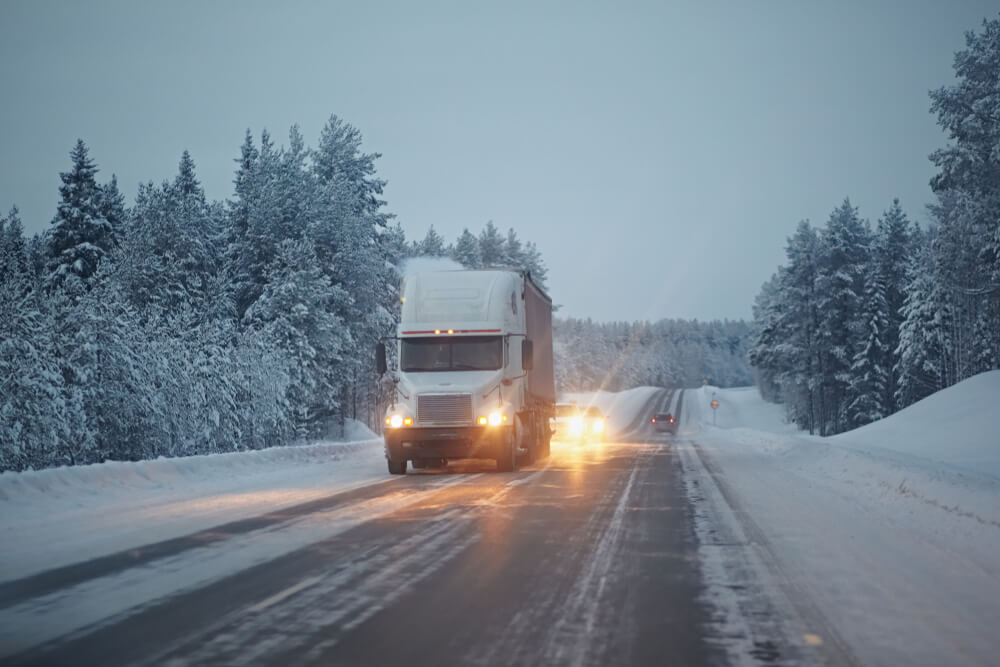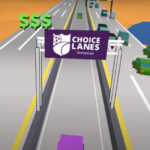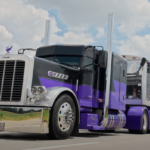Truck drivers passing through Colorado need to take note of the upcoming implementation of chain mandates in early September.
The Colorado Department of Transportation (CDOT) stipulates that operators of commercial vehicles (those with a GCWR/GVWR exceeding 16,001 pounds) using I-70 between mile markers 133 (Dotsero) and 259 (Morrison) must have appropriate chains at their disposal from the start of September until the end of May annually.
It’s important to clarify that these chain requirements pertain exclusively to trucks, not trailers, as per the regulations in Colorado.
Whenever the chain regulation is activated, drivers will receive notifications through electronic message signs, the 511 traveler information service, the website www.cotrip.org, and various media channels.
“Chains must consist of two circular metal loops, one on each side of the tire, connected by not less than 9 evenly-spaced chain loops across the tread. Commercial vehicles that have 4 or more drive wheels must chain 4 wheels. Dual tire chains are acceptable,” the Colorado Department of Transportation states.
The Colorado Department of Transportation (CDOT) has established two tiers of chain regulations that can be put into effect based on prevailing weather conditions:
CHAIN LAW LEVEL 1/CODE 17: All single drive axle combination commercial vehicles must chain all four drive wheels; cables are not permitted as ATDs. All other commercial vehicles must have snow tires or chains. Level 1/Code 17 may be implemented any time there is snow covering any part of the traveled portion of pavement on an ascending grade.
CHAIN LAW LEVEL 2/CODE 18: All commercial vehicles must chain up. Single drive axle combination and tandem drive axle commercial vehicles must chain four drive wheels. Autotransports must comply to the extent possible without causing damage to hydraulic lines. Buses must chain two drive wheels to comply. Level 2/Code 18 may be implemented any time there is snow covering the entire traveled portion of pavement on an ascending grade, or when driving conditions dictate that this level is necessary to protect safety and to minimize road closures.
For those traversing I-70 between mile markers 133 and 259 from September 1 to May 31, the penalty for not possessing chains is a $50 fine along with a $17 surcharge. In cases where the chain law is active and vehicles fail to comply by chaining up, the penalty amounts to $500, accompanied by a $79 surcharge. Furthermore, obstructing a highway due to non-compliance with chaining requirements incurs a heftier fine of $1,000, coupled with a $157 surcharge, as outlined by CDOT regulations.
Chain-Up Station Locations:
- I-70 Eastbound: Mile markers 178, 183, 184 (shoulder), 187 (shoulder), 195, 203 (scenic area), 205, 219, 228, 241, 251, 289, 343
- I-70 Westbound: Mile markers 358, 263, 260, 254 (Buffalo Overlook), 228, 223, 221, 219, 213, 197, 179
- I-25 Northbound: Mile marker 159
- I-25 Southbound: Mile marker 172
You can check www.cotrip.org for information on chain requirements.





